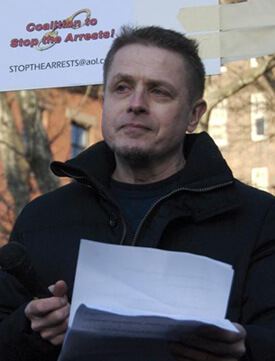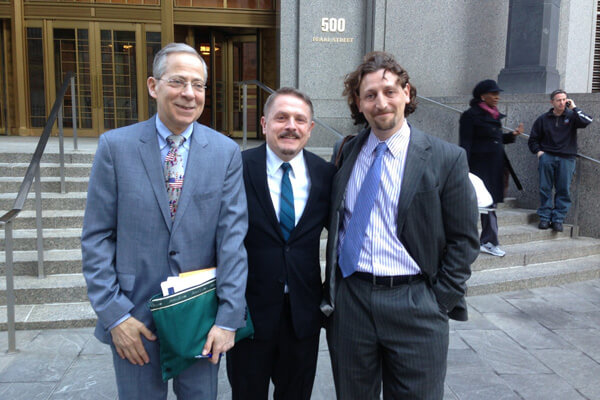With the support of Governor Andrew Cuomo and Mayor Bill de Blasio, AIDS groups believe they can win long-sought legislation that would cap rent at 30 percent of income for people with AIDS who receive housing assistance.
“I’ve believed in this rent cap for a long time,” de Blasio said in a February 12 speech announcing his city preliminary budget, which funds the rent cap for the city’s 2015 fiscal year. Cuomo issued a February 13 press release endorsing the rent cap.
“It’s a tremendous step forward in this process, but nothing is done until there is a signature on the budget bill,” said State Senator Brad Hoylman, whose district runs from 72nd Street to the West Village and from river to river in Manhattan.
Mayor, governor agree on housing assistance solution sought for more than a decade
The de Blasio administration will spend $4.3 million in the current fiscal year and $17.4 million in the 2015 fiscal year, which begins on July 1, to pay for the rent cap. The city is paying two-thirds of the cost and the state is funding the rest.
In 1969, Congress enacted the Brooke Amendment, named for Massachusetts Senator Edward Brooke, that capped rent payments for people living in federally funded housing at no more than 30 percent of their annual income.
People with AIDS who are clients of the HIV/ AIDS Services Administration (HASA), a unit of the city’s Human Resources Administration, receive a package of benefits with only some funded with federal dollars. The HASA rental assistance is paid for with city and state cash so it is not subject to the Brooke Amendment.
AIDS groups have been fighting for nearly a decade to change state law to apply the cap to housing assistance for people with AIDS. In 2010, the rent cap passed the State Legislature as a stand-alone bill, but it was vetoed by then-Governor David Paterson.
Mayor Michael Bloomberg, who held City Hall for 12 years until this year, consistently opposed the legislation, seeing it as an entitlement that the city could not afford.
“I would say the biggest single change was de Blasio’s election,” said Sean Barry, executive director of VOCAL-NY, an AIDS advocacy group. “Everybody was on board with it except Mayor Bloomberg and he kept bringing it to a screeching halt.”
Ginny Shubert, a principal at SBPA, a public policy consulting group, said that Cuomo, who took office in 2011, probably would have supported the rent cap earlier but for Bloomberg.
“Bloomberg was just absolutely opposed,” Shubert said. “I think it might have happened earlier under [Cuomo] had it not been for the opposition of the Bloomberg administration.”
Bloomberg made significant donations to the state Republican Party to keep the GOP in control of the State Senate, which doomed the rent cap legislation since 2011.
The legislation to enact the rent cap will be part of the state budget as opposed to a stand-alone bill. The budget is must-pass legislation so that greatly increases the likelihood that the rent cap will be enacted.
“We haven’t seen the language for how the state will accommodate the mayor’s program,” Hoylman said. “We’ve had very positive conversations all along.”
Also in his preliminary $73.7 billion budget, de Blasio acted on a campaign promise to eventually spend $12 million a year to fund programs for homeless youth, including queer youth.
Calling homelessness among youth a “growing problem that has only been partially addressed by the city,” de Blasio said, “This is a commitment I made last year that we’re going to steadily increase the funding.”
The de Blasio administration is constrained by an economy that is only slowly improving and by a budget gimmick that the prior administration used to balance its budgets. Bloomberg left office without closing new contracts with any city unions, which saved him roughly $7 billion. The de Blasio administration has to negotiate 150 contracts.
“This is the first time a mayor has entered office with all these contracts open,” he said. “It’s both the sheer number of open contracts… and the reality that these contracts have been unresolved for years and years.
At the February 12 press conference, de Blasio said his administration was funding “relatively few new spending initiatives” that reflect its progressive values.
“We’ve kept the choices to a few distinct areas and we’ve kept the choices quite modest,” he said. “We’re being very cautious in the preliminary budget.”


































